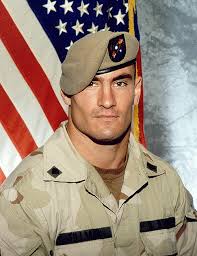A brave nation fights because it must; a cowardly one fights because it can ~ilana
War makes the memories of the boys I knew and who are no longer come flooding back. I grew up in Israel, and lived through the 1967 Six-Day War, the devastating 1973 Yom Kippur War, the tragic incursion into Lebanon, and all the hostilities in between. I left Israel partly because life there was just too darn painful.
In those days, it was war with the Arab states. Israel and the Arab states that surround her have not been to war for a long time. When a war is prosecuted in your backyard, you avoid it like the plague. Perhaps this is why Americans go to war so casually; they do it on someone else’s turf.
Secretary of Defense Donald Rumsfeld had said that precision strikes were being lobbed “with great humanity.” (A strange word to use about bombs sent directly into Baghdad.) His words made me remember precisely where I was in 1967, when the sirens sounded.
We lived in a place similar to, but not quite like, a Kibbutz. It was quite safe for a child to wander about along the paths, as I was doing at the time. A man grabbed me and carried me down to the underground shelter. The border with Jordan was close by back then, and we could hear the artillery. Someone switched on the radio. We tuned into the infamous Broadcast from Damascus, according to which the Jews were being thrown into the sea. I was very frightened, as the people of Baghdad must have been when the “humane attacks” on their city commenced.
When the war was over, 759 men were dead and about 3,000 had been wounded. Arab casualties came to about 15,000. A nation’s Remembrance Days become more gut wrenching when war is up close and personal. These agonizing days are devoted to the men who are gone. Those who return dazed and confused are often forgotten.
Thanks to both his legendary wit and lack of coordination, my own father was only ever consigned to being the jester and coffee maker for the engineering corps with which he was stationed. But I’d overhear a lot of whispering about maimed buddies and missing digits.
The Yom Kippur War Israel nearly lost. Israeli intelligence failed miserably. As is usually the case, the kids paid the price—a few hundred youngsters were stranded on the borders with no backup. They defended their posts heroically before being gruesomely slaughtered. Many were dismembered.
When that war ended, Remembrance Day swelled to include another 2,523 casualties—about one-tenth of one percent of the population was dead. Thousands more were wounded. The casualty estimates for Egypt and Syria were 16,000.
These days, I think a lot about Avshalom. The Avshalom I knew was as beautiful as his biblical namesake, King David’s son. Avshalom had dimples to die for, big brown eyes, and blond, sun-streaked curls. The vision of him, shirtless, on a red Ferguson tractor, as he ploughed the fields of the kibbutz, was very fetching.
Avshalom was 19 or 20 years old when he died. Like all Israeli boys, he was conscripted and he fell in some or other maneuver. My class lost another boy. There may have been others since, but I’ve lost touch.
This much I know: The Israeli people loathe war. Living with such obscene carnage was bearable only when the alternative was conquest and national death. When the people learned the truth about the Lebanon War—that it was a grand offensive hatched by leadership—and when the boys kept dying, the Israeli people—Left and Right—flooded the streets. They formed human chains from Tel-Aviv to Haifa and stopped the madness.
When this grandiose war on Iraq began, the polls showed that Americans have a stomach for sacrificing up to 1,000 youngsters. How was this possible?
Low opportunity costs, folks: The average American doesn’t associate the war with prohibitive costs to himself. Few of us know anyone who is in harm’s way. Thanks to the armchair warriors’ propaganda, Americans will not associate loss of jobs, a weak dollar, unstable financial mark
ets, taxes, and deficits with the war. On the surface, and for now, our lives remain unaltered. With few visible costs to foot, what’s the big deal?
Perhaps if Americans were unable to go about their daily lives, like Iraqis, or Israelis, or Egyptians, or Syrians or Lebanese, or Palestinians during the wars in that region; perhaps if every American personally knew an Avshalom, perhaps then they wouldn’t be as eager to send men to kill and be killed.
Make no mistake, our soldiers are brave. But is our nation brave? What I learned growing up in a war-torn region is that a brave nation fights because it must; a cowardly one fights because it can.
©By ILANA MERCER
WorldNetDaily.com
March 26, 2003
CATEGORIES: Anti-War, Ethics, Foreign Policy, ILANA Mercer, Iraq, Israel, Justice, Libertarianism, War

 print
print